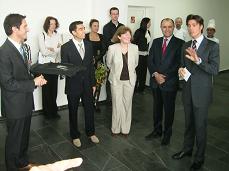formal informal english
Language Usage
Grammar vs. Usage
While grammar is the system of a language, usage is the way people actually communicate. These differ somewhat.
When people — even native speakers — converse, they don’t always follow grammar rules. They contract words (I’m, You’ve, He’s). They say things like, “uh”, “yeah”, “gonna”, and “wanna”. They use slang…even bad words.
Profession, Specialty
A person’s occupation influences the way he or she speaks. People working in machine shops, offices or with computers use jargon unique to their fields that outsiders find baffling.
After work, these same specialists speak standard English with non-colleagues.
Situation
Likewise, language use depends a given situation. A person may also speak one way at a formal gathering….but in a completely different way in a club with his buddies.


Culture
Different cultures around the world have different norms about what is appropriate in conversation.
In some countries, it’s perfectly alright for people to ask each other and to disclose what their personal income is…whereas in others, this is strictly taboo.
At the same time, both groups may have opposite attitudes regarding “indecent” matters.
National and Regional Variations
Many people think that English is English—no matter where you go. In reality all nations have their own dialect and, or accent.
The majority of Americans, Australians, Britons, Canadians, and Irish speak English. But they use certain words and expressions unique to their country, and even region.
UK vs. US
In the UK, for example, they have words such as petrol, chips, dustman, and to be made redundant. The corresponding terms in the US are gasoline, French fries, garbage collector, and to be laid off.
Evolution
On top of all this, language usage undergoes change over time. What is trendy now, may not be in a few years. “Not” as an interjection is one example.
We therefore always need to be aware of our environmental and cultural setting, and who we are speaking to. And stay current.
Ask and answer the following questions.
1. Some of my classmates/neighbours swear. True or false? Is this acceptable?
2. What’s your occupation? What are some special terms that you use?
3. Is it okay for people to talk about personal incomes (where you live)?
4. People in different parts of my country can understand each other perfectly well. Yes or no?
5. Is there a noticeable difference between the way the older and younger generation speak? Give some examples.

